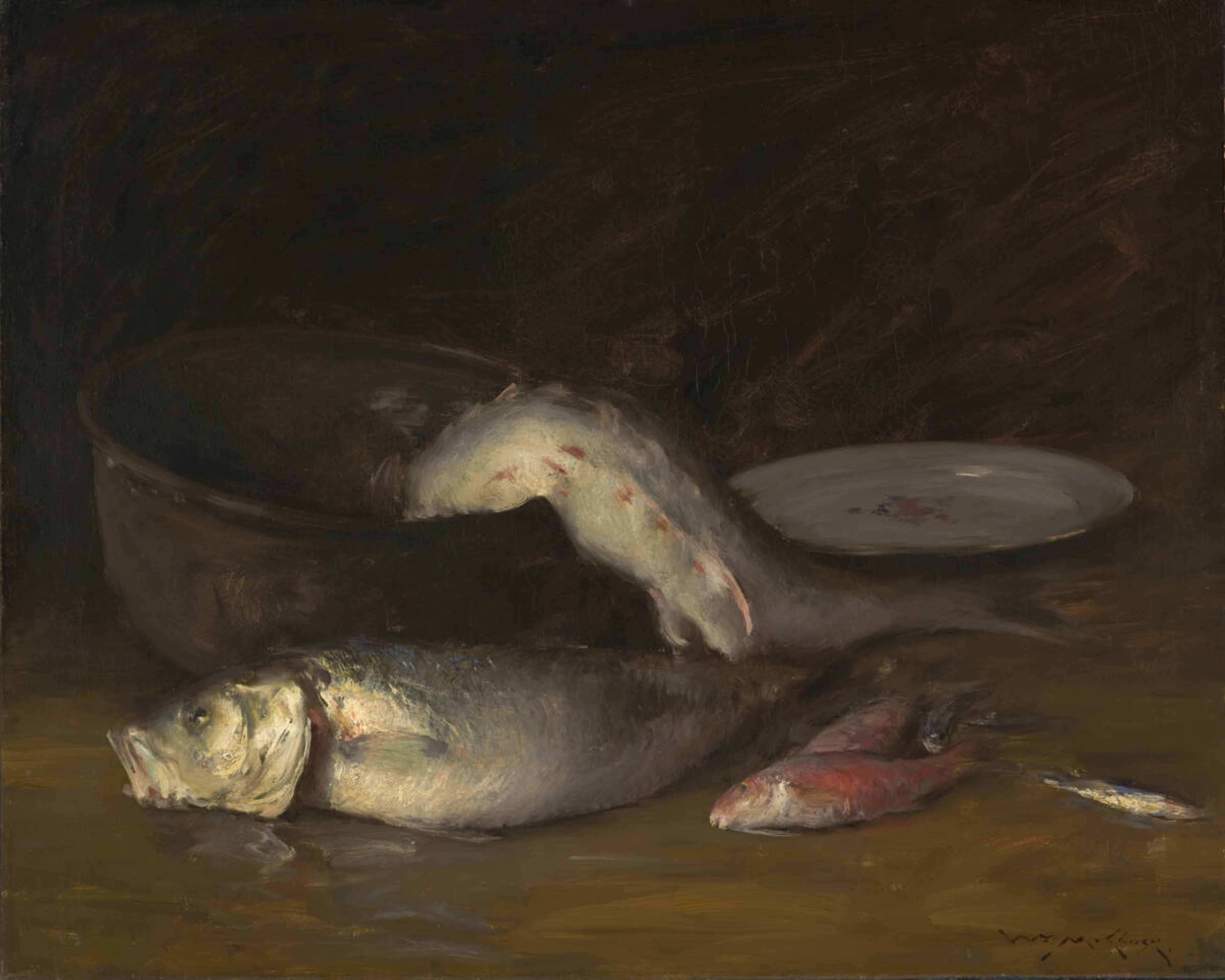Fish is food. It's wildlife. It's a metaphor.
Throughout human history, the humble fish has been more, much more, than food.
Historically – perhaps because it's so central to human health and development – it has been a symbol, an outsized actor in the human imagination.
In English, we speak of fish in many expressions that are not about fish. Pinning down the origins of these idioms through the centuries in some cases was as easy as shooting fish in a barrel; in others, it presented me with a pretty kettle of fish.
So consider this article clickbait for fish, and language, lovers.
And please don't hold me responsible if my explanations sound fishy.
"Fishy" for suspicious
As early as the 1500s, people spoke of someone being "slippery as a fish."
However, the phrase "smells fishy" seems to date to the early 1800s fish markets, before commercial ice-making devices came into use. Imagine the odor of a cluster of stalls full of spoiling products and fishmongers demanding full price...that would smell fishy indeed.
But suspicion or doubt is linked to smell in many languages, and not always to fish smells. The link seems adaptive. A bad smell reminds you to slow down and inspect an item closely before eating it.
In English, our suspicion-smell link is mostly about fish. The association is so tight that English-speaking volunteers did better on critical thinking tests after getting a whiff of fish.
Conversely, in an experiment in which scientists first made their volunteers suspicious, they became more sensitive to the smell of fish and were better at identifying odors generally.
"Shooting fish in a barrel" for an easy task
Before refrigeration or commercial ice, fishmongers packed fish tightly into barrels with salt. Any shot into a barrel would be guaranteed to hit at least one of them, so nothing could be easier than shooting fish in a barrel.

"Fish out of water" for being out of your customary environment
This one seems self-explanatory. As Chaucer wrote in Canterbury Tales, published around 1386, "...a monk, when he is cloisterless; Is like to a fish that is waterless."
In Samuel Purchas' Pilgrimage, in 1613, he wrote, "The Arabians out of the deserts are as Fishes out of the Water."
A "red herring" that misleads
A fresh herring is silvery with white flesh underneath (and delicious, we might add). It turns red or reddish when soaked in brine and then smoked. This also enhances the smell.
In a 1674 book on fox hunting, the author instructs fox hunters to lay a trail by dragging a dead fox, dead cat, or red herring over the countryside. The goal may have been to train foxhounds to follow a scent. Later, some say that escaped convicts lay down red herring trails to mislead the hounds chasing them, or that people who opposed fox hunting put down false trails so the fox could escape.
The idiom may have been created by the journalist William Cobbett in 1807. He apparently made up a story about drawing hounds away from a hunt with a red herring. He went on to say that journalists were misled in the same way by a false report that Napoleon had been defeated: "Alas! it was a mere transitory effect of the political red-herring; for, оn the Saturday, the scent became as cold as a stone."
"Big fish in a small pond" for the most prominent of a small group
The idiom first appeared in print in the Galveston (Texas) Daily News in 1881, though it may have been in use much earlier.

Why be koi about it? It's good to be a big fish in a small pond.
"Crabby" for irritable
Our English word "crab" comes from the Old English "crabba." The German root meant "to scratch or claw." The word came to mean irritability in the late 1700s, probably a reference to a crab's tendency to painfully nip with its claws, tenaciously hold on, and walk backwards and sideways, which seems anti-social behavior (though not for crabs).
"Flounder" for unproductive struggle
A flounder is a flat fish with both eyes on one side of its head. As a verb, the word means to be unsteady, uncertain, thrashing about like a just-caught fish. The origin may be the Dutch word "flodderen" (to flop about) or English "founder" (to fail).

People used to say that a sunken ship or a horse that stumbled and fell to the ground had foundered. When a flounder foundered, it floundered.
"Fish or cut bait" for choosing to act or stand aside
The phrase suggests commanding someone who is unwilling to take the next step to act... or just as decisively choose not to act.
It appeared in print in 1853, when a U.S. Attorney General named Caleb Cushing was threatening to impeach the judge presiding over Cushing's land dispute. The judge responded that Cushing must "either fish or cut bait," which seemed to mean that Cushing should commit to either the decisive, active role of throwing the judge out, or the passive one of leaving him alone.
"Pretty kettle of fish" for a vexing problem
In the 1700s, Scottish gentry gathered beside rivers and poached whole, freshly caught salmon in kettles over a fire, an event they called a "kettle of fish." (An old-style fish kettle didn't have a spout. It was a long, oval metal dish that often contained a rack inside.)

Adding the words "pretty" or "fine" is meant sarcastically to signify the precise opposite. In the novel Joseph Andrews, Henry Fielding writes in 1742: "Here's a pretty kettle of fish," cries Mrs Tow-wouse, "you have brought upon us! We are like to have a funeral at our own expense."
We also can't forget Gilbert and Sullivan's usage in Iolanthe, speaking of a Member of Parliament: "Carrying every Bill he may wish: Here's a pretty kettle of fish!Kettle of fish!Kettle of fish!Kettle of fish!"
In short, the jig is up! No point in denying it. It's perfectly appropriate that humans have been fascinated with fish for so long, as our fates and those of our finny friends have been long intertwined.
Linguistically and otherwise, we'd founder like a beached flounder without them!







